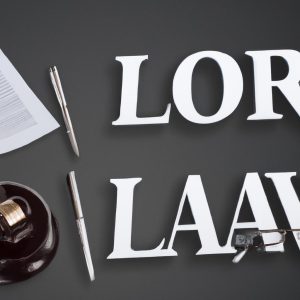In the realm of legal doctrines, the concept of constructive trust looms large as a powerful tool for ensuring equity and justice in contentious property disputes. Defined as a trust that arises by operation of law rather than the intent of the parties involved, constructive trust serves as a remedy for situations where one party wrongly holds legal title to property that rightfully belongs to another. In this article, we will delve into the intricacies of constructive trust, its application in various legal scenarios, and the implications for those seeking redress in matters of ownership and security. Join us as we navigate the complex terrain of this foundational legal principle and illuminate its significance in the realm of trusts and estates.
Understanding the Nature of Constructive Trusts
Constructive trusts are a unique legal concept that arises not from the intention of the parties involved, but rather from the circumstances of the situation. In essence, a constructive trust is imposed by a court to prevent unjust enrichment or to ensure fairness in situations where one party holds property for the benefit of another. This type of trust is often used in cases where it would be unfair for one party to retain ownership of property that rightfully belongs to another.
Unlike express trusts, which are created through a formal agreement between the parties, constructive trusts are based on the principles of equity and fairness. In order to establish a constructive trust, certain elements must be present, including the existence of a fiduciary relationship between the parties, unjust enrichment on the part of the defendant, and a clear intention to create a trust relationship. It is important to understand the nature of constructive trusts in order to navigate complex legal situations where the rights and interests of all parties involved must be carefully considered.
Implications of Imposing a Constructive Trust
The can have far-reaching consequences in the legal realm. When a court imposes a constructive trust, it means that a party is being held responsible for holding property or assets for the benefit of another party. This can occur in situations where there has been a breach of trust or a wrongful act that has caused harm to another party.
One of the key is that it serves as a remedy to prevent unjust enrichment. It ensures that the party who has benefited unfairly from another’s actions is required to hold the property or assets in trust for the rightful owner. Additionally, constructive trusts can help to protect the rights of beneficiaries and ensure that they receive what they are entitled to. It is essential to consult with a knowledgeable legal professional, such as those at Morgan Legal Group in New York City, to understand the in your specific legal situation.
Factors Involved in Establishing a Constructive Trust
When establishing a constructive trust, there are several key factors that must be considered to ensure that the trust is valid and enforceable. These factors play a crucial role in determining the rights and obligations of the parties involved in the trust agreement. Some of the key include:
- Fraud or Misrepresentation: One of the most common factors that can lead to the creation of a constructive trust is fraud or misrepresentation. If one party has been misled or deceived into entering into a transaction, a court may impose a constructive trust to remedy the situation.
- Unjust Enrichment: Another factor that can give rise to a constructive trust is unjust enrichment. If one party has been unjustly enriched at the expense of another, a court may impose a trust to ensure that the rightful owner is able to recover what is rightfully theirs.
Guidelines for Resolving Disputes Related to Constructive Trusts
When disputes related to constructive trusts arise, it is crucial to have a clear understanding of the guidelines for resolving them. Constructive trusts are a legal remedy used to prevent unjust enrichment when one party holds property that rightfully belongs to another. Resolving disputes related to constructive trusts requires a thorough understanding of the law and careful consideration of the facts of the case.
One key guideline for resolving disputes related to constructive trusts is to carefully analyze the evidence presented in court. This may include examining documents, witness testimony, and any other relevant information that may shed light on the nature of the trust relationship. Additionally, it is important to consider the intentions of the parties involved and any actions or statements that may indicate the existence of a constructive trust. By approaching disputes related to constructive trusts with diligence and attention to detail, it is possible to reach a fair and just resolution for all parties involved.
Q&A
Q: What is a constructive trust?
A: A constructive trust is a legal concept that arises when a person holds property that rightfully belongs to someone else.
Q: How is a constructive trust different from other types of trusts?
A: Unlike traditional trusts, which are created by an individual’s explicit intention, a constructive trust is imposed by a court to prevent unjust enrichment.
Q: When might a constructive trust be imposed?
A: A constructive trust may be imposed in cases of fraud, breach of fiduciary duty, or when one party unfairly benefits from another’s mistake or incompetence.
Q: Can you give an example of when a constructive trust might be imposed?
A: For example, if a friend convinces you to invest money in a property under their name, but then refuses to share the profits with you, a court may impose a constructive trust to ensure you receive your fair share.
Q: How is a constructive trust enforced?
A: A court will typically order the party holding the property to transfer it to the rightful owner or hold it in trust for their benefit.
Q: Are constructive trusts recognized in all legal jurisdictions?
A: While the concept of a constructive trust is recognized in many common law jurisdictions, the specific requirements and procedures may vary. It is important to consult with a legal professional in your area for advice on constructive trusts.
Wrapping Up
In conclusion, the concept of constructive trust serves as a powerful tool in the realm of equitable remedies, providing a means to rectify situations where legal ownership does not reflect the true intentions and contributions of the parties involved. By delving into the intricacies of constructive trust, we gain a deeper understanding of the principles of fairness and justice that underpin our legal system. As we navigate the complex landscape of property law, let us remain mindful of the transformative potential of constructive trust in righting wrongs and upholding the ideals of equity.
Constructive Trust Definition: Understanding the Basics
In the legal world, the term “trust” often refers to a legal arrangement where a trustee holds and manages assets for the benefit of another party, known as the beneficiary. However, there is another type of trust that is equally important but less talked about- constructive trust. This legal concept provides protection and rights to parties who have contributed, but do not technically hold, the legal title to a property. In this article, we will explore the definition, key elements, and practical applications of constructive trust.
What is Constructive Trust?
Constructive trust is a legal concept that allows the court to recognize the equitable interest of a party in a property despite not having legal title to it. This means that the trust is not created by an express agreement between the parties, but instead by the operation of law. It is often used in cases where there has been a breach of trust or unjust enrichment, and the court finds that a party has been unfairly deprived of their rights to a property.
Key Elements of Constructive Trust
For a constructive trust to be established, certain key elements must be present. These elements may vary depending on the jurisdiction, but generally, the following are the main requirements:
1. Breach of Trust or Unjust Enrichment
The first and most crucial requirement for a constructive trust is a breach of trust or unjust enrichment. This means that one party has taken advantage of another party’s contributions or unfairly kept something that does not rightfully belong to them.
2. Contribution
The party seeking the constructive trust must have made a contribution, whether financial or non-financial, to the property in question. This contribution must have been made with the expectation of receiving a share or interest in the property.
3. Knowledge
The court must be satisfied that the party against whom the trust is sought had knowledge of the contribution made by the other party. This knowledge can be actual or constructive, meaning that the party should have been aware of the contribution.
4. No other Remedies Available
The court will only impose a constructive trust if there are no other remedies available to the party seeking it. This means that the trust is considered a last resort when other forms of relief, such as monetary damages, are not enough to redress the situation.
Practical Applications of Constructive Trust
Constructive trust has various practical applications in different legal scenarios. Some common examples include:
1. Fraud
In cases where a party has fraudulently acquired a property, the court may impose a constructive trust on the property for the benefit of the defrauded party. This ensures that the rightful owner of the property is not deprived of their rights.
2. Family Law
Constructive trust is also used in family law to protect spouses or partners who make contributions to the other party’s property during marriage or a common-law relationship. In the event of a divorce or separation, the court may impose a constructive trust to ensure that these contributions are recognized and the parties receive a fair share of the assets.
3. Property Disputes
In cases where a property dispute arises between co-owners or joint tenants, but there is no legal evidence of ownership, a constructive trust can be imposed to determine each party’s equitable interest in the property.
Benefits and Practical Tips for Parties Involved in Constructive Trust
For parties involved in a constructive trust situation, there are several benefits and tips to keep in mind.
1. Protection of Equitable Interest
The most significant benefit of a constructive trust is protection of the equitable interest of the disadvantaged party. This ensures that they are not unfairly deprived of their rights to a property.
2. A Last Resort Remedy
As mentioned earlier, a constructive trust is usually considered a last resort remedy when other forms of relief are not enough to redress the situation. Therefore, it is essential to exhaust all other options before seeking a constructive trust.
3. Seek Legal Advice
Constructive trust cases can be complex and often involve a considerable amount of evidence and legal procedures. It is crucial to seek legal advice from a trusted and experienced lawyer to ensure that your rights and interests are protected.
Real-Life Examples of Constructive Trust
One of the most famous examples of constructive trust is the case of McLoughlin v O’Brian, where the court imposed a constructive trust on a partially completed house in favor of a woman who had contributed to its purchase and renovation. The woman had made financial contributions for the property’s purchase and improvement, but her name was not on the legal title. The court recognized her equitable interest in the property and awarded her a share of its value.
Another example is the case of Tinsley v Milligan, where a woman contributed to the purchase of a property with her partner. However, the property was registered solely in her partner’s name to avoid paying taxes. After their relationship ended, the woman was left with no legal rights to the property. The court imposed a constructive trust on the property, allowing the woman to claim her rightful share.
In Conclusion
Constructive trust is a valuable legal concept that provides protection and rights to parties who have made contributions to a property but do not hold the legal title. It is a complex and highly fact-specific area of law, and parties seeking a constructive trust must be able to satisfy the court’s stringent requirements. Seeking legal advice and exhausting other options for relief are crucial steps to consider before seeking a constructive trust.










